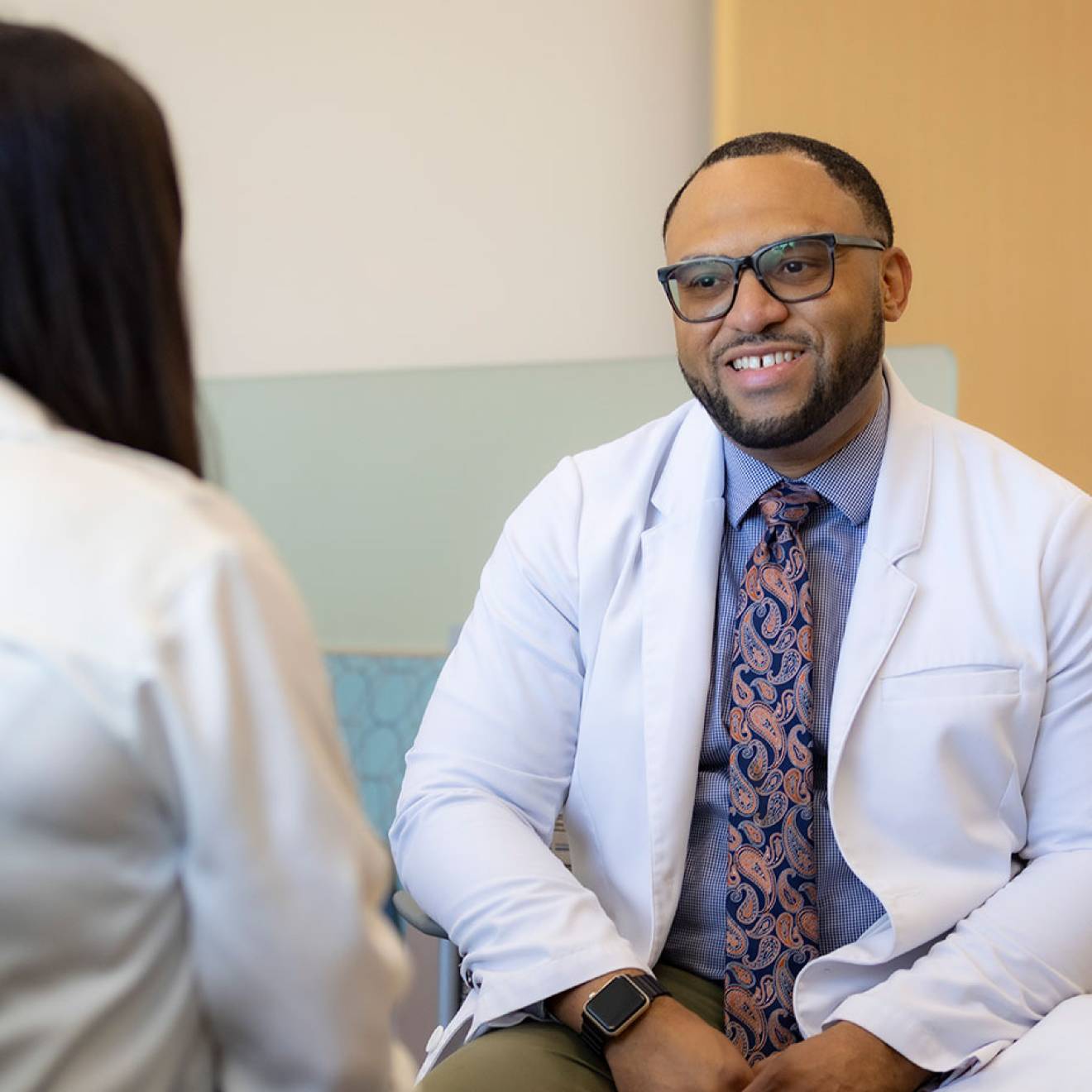Alec Rosenberg, UC Newsroom

College students across the country are increasingly stressed out, with demand growing nationally for mental health services on campuses.
The University of California is taking action to address the issue and is hiring 85 clinicians across the system to increase access to mental health services, reduce wait times for students, and complement outreach and prevention efforts.
“We’re seeing a national trend,” said Gary Dunn, Ph.D., Counseling and Psychological Services (CAPS) director at UC Santa Cruz and chair of the UC CAPS directors group. “The UC system is trying to get out ahead of it. While this is not going to solve the entire problem, it’s an important step in the right direction.”
The rise in demand for college mental health services likely stems from a variety of factors, Dunn said. More students come to college with prescriptions for psychotropic drugs, and need to continue those medications; students also are more likely to be first-generation college-goers, and may need additional support; and society itself has become more stressful, with higher numbers of students reporting feelings of anxiety and depression.
In recognition of the growing need, UC last year approved an increase in the annual student services fees to help expand mental health services systemwide – a move backed by student leaders. Regents on Wednesday (March 23) heard an update on UC’s efforts to expand services. The funds, which will help boost UC’s student mental health budget from $40 million to $58 million by 2018-19, will support hiring 85 mental health clinicians to include psychologists, psychiatrists, psychiatric nurse practitioners and case managers, with staff diversity a top priority in that hiring push. The goal is to hire these staff by the beginning of the new academic year.
“I see it as an investment in the retention of students,” said UC San Diego senior Sarah Feteih, student outreach coordinator for the campus’s CAPS Wellness Peer Education Program. “I think it will have a really big impact.”
Feteih is in her third year as a wellness peer educator, one of 11 on the San Diego campus. They work to educate fellow students about mental health and wellness, reduce stigma, and spread awareness of CAPS on campus through workshops, presentations and quarterly outreach events themed around topics such as depression, healthy sleeping and coping with stress.
“We want to make sure that we are welcoming and professional when talking to students,” Feteih said. “It’s being able to connect with students on a peer-to-peer level. It breaks down barriers and makes it more comfortable for them. To even ask for help can be really hard for students to do.”
Hiring new clinicians
Across the country, college students are reporting increasing levels of distress, with growth in anxiety and depression, according to the Center for Collegiate Mental Health. Consistent with national data, UC counseling centers have seen a 54 percent increase in students seeking access to mental health services since 2007. In all, 13 percent of UC students received campus counseling services last year.
The demand has stretched the capacity of UC counseling centers. The new hires will increase the counseling centers’ clinical staff by 43 percent, said Gina Fleming, M.D., M.S.P.H., medical director for the UC Student Health Insurance Plan.
The hires will bring UC staffing in line with recommended ratios: 1:1,000-1,200 for psychologists and 1:6,500 for psychiatrists. UC will track the impact of the additional staffing and assess whether the expanded services let students get help more quickly.
“We’re very excited that we’re able to hire these people and proud that our system is tackling this proactively,” Fleming said. “I haven’t heard of anything like that going on, particularly on a systemwide basis.”
UC already has hired 16 psychologists and six psychiatrists in two months. As part of the push, campuses are looking to meet needs by recruiting diverse mental health providers with cultural competency and special skill sets to care for vulnerable populations.
“We want to make sure we’re hiring the right people,” Fleming said.
Providing guidance
Thomas Parham, Ph.D., UC Irvine vice chancellor for student affairs, helped prepare a 2006 UC report on student mental health. He now chairs UC’s Student Mental Health Oversight Committee, which provides strategic guidance for student mental health services.
“We’ve been at this more than a decade in a serious way trying to address what we’re doing as a system,” Parham said. “We’ve come a long way.”
Parham praised the sense of urgency in recruiting, hiring and credentialing new clinicians while noting the challenge of finding space to accommodate the practitioners. At UC Irvine, “our counseling center is now out of space,” he said.
Reaching out
In addition to increasing services for mental health treatment, UC also has worked hard to focus on outreach and prevention.
With a grant from the California Mental Health Services Authority, funded through the voter-approved Mental Health Services Act (Proposition 63), UC has ramped up outreach and prevention efforts, said Taisha Caldwell-Harvey, Ph.D., student mental health program manager and clinical coordinator at the UC Office of the President. Those efforts include:
- Launching an anonymous online suicide prevention screening program.
- Launching the Red Folder initiative, with each campus publishing a “red folder” quick reference guide to help faculty and staff know how to recognize and respond to distressed students; an expanded guide book to encourage faculty and staff leadership to learn the basics in mental health will be released in May.
- Launching student mental health awareness campaigns at each campus.
- Hiring clinicians on every campus who specialize in outreach.
- Producing public service announcements and training videos for students.
- Creating a UC student mental health website and email list to connect clinicians across all UC campuses and encourage sharing of best practices.
- Enhancing and growing mental health peer educator programs.
- Hosting a series of conferences to share best practices in culturally responsive treatments, crisis intervention and advancements in technology among the UC, California State University and California Community College systems.
“We’re all struggling with the same issues,” Caldwell-Harvey said. “By sharing ideas, we’re not each having to reinvent the wheel.”
A RAND study assessed the impact of Proposition 63 mental health outreach and prevention funding on public higher education students. The study estimated the net societal benefit to be more than $6 for every $1 invested in California public college and university prevention and early intervention programs, and predicted an additional 329 students will receive a college degree for each year the investment is made.
But Proposition 63 funding is now being redistributed to the counties, jeopardizing future support from the initiative for UC outreach and prevention programs, Caldwell-Harvey said. Assemblyman Kevin McCarty has introduced AB 2017, which would create the College Mental Health Services Fund, amending Proposition 63 to fund matching grants for mental health services for UC, CSU and California Community College students.
Piloting innovative projects
Meanwhile, UC campuses are piloting innovative projects and exploring different technologies to help address student mental health.
UC Merced, for example, has begun using telepsychiatry services to help address practitioner demands.
UC Riverside, UC Santa Barbara and UC Santa Cruz are independently funding an eight-hour mental health first aid course offered to students, staff and faculty to help recognize and respond to students in distress.
UC Santa Cruz also is trying online services, including WellTrack, a self-help program that targets stress, anxiety and depression. Another new program, Embrace Your Life, consists of three workshops on coping skills, mindfulness, resiliency and stress reduction.
“Our long-term vision is to develop a step program” that provides the appropriate level of services to students based on their needs, Dunn said.
Rising to the challenge
Peer mentors can play an important role in serving student needs, said Alex Hill, who was a mental health peer as a junior at UC Santa Barbara.
“It’s a safe space for students,” Hill said. “Many students just need a place where they can calm down.”
After the 2014 tragedy at Isla Vista, Hill expanded his involvement, becoming a student observer to the UC Regents Committee on Health Services, where he advocated for additional funding for student mental health services. Now he is seeing the fruits of those efforts as a UC Health analyst for student health and counseling.
“Mental health issues don’t appear overnight, and some students come into higher education with struggles of mental health that have been unaddressed up until this point in their lives,” Hill said. “The university is shining a spotlight to let students know that it is not only OK, but normal, to get the care that they need. There is a lot of work that needs to be done, and we’re on track to take those steps.”

